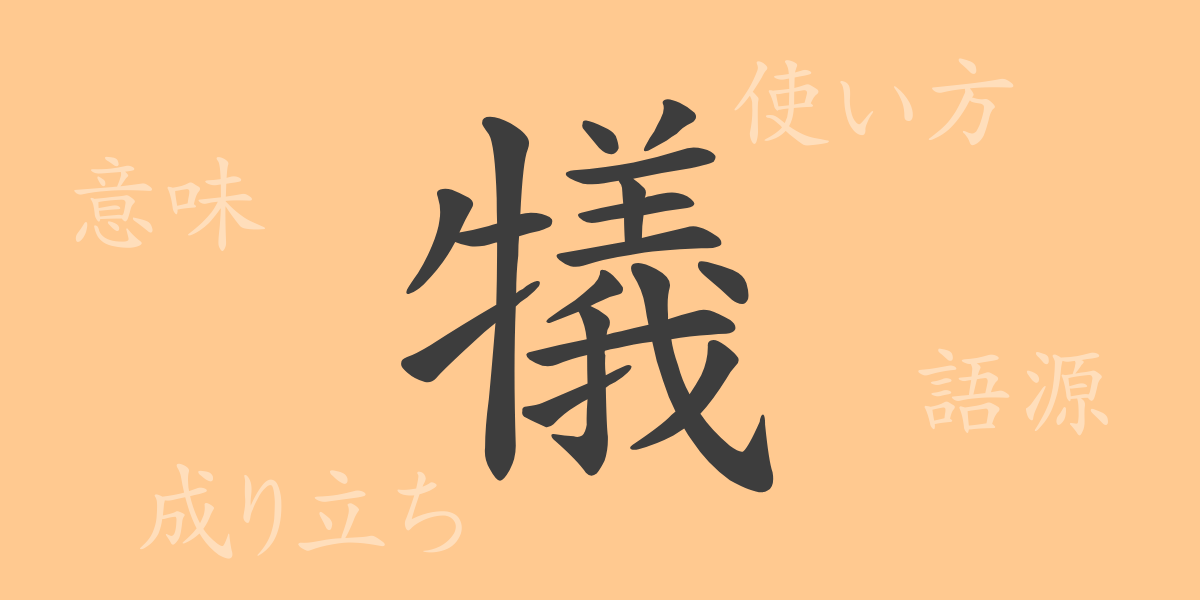The beauty of the Japanese language lies in its complexity and depth. The meaning embedded in a single kanji character can sometimes tell an entire story. This time, we focus on the common-use kanji “犠” (gi), delving deeply into its origins, meanings, usage, and related idioms and proverbs. Let’s explore the world of this character and appreciate the richness of the Japanese language.
Origin of the Kanji “犠” (語源)
The kanji “犠” (gi), often used in the context of “sacrifice,” originates from combining the radical for “cow” (牛, gyuu) and the component “示” (shimesu), which means to show or indicate. In ancient Chinese rituals, cows were offered as sacrifices to the gods, which imbues the character “犠” (gi) with the meaning of making a sacrifice.
Meaning and Usage of “犠” (gi)
The primary meaning of “犠” (gi) is sacrifice, referring to the act of offering something. It is especially used to denote sacrificing something for a greater benefit or success. Common expressions include “犠牲にする” (gisei ni suru, to sacrifice) and “犠牲を払う” (gisei o harau, to pay a sacrifice).
Reading, Stroke Count, and Radical of “犠” (gi)
The kanji “犠” (gi) has specific readings, stroke counts, and radicals in Japanese.
- Reading: The on-yomi (Chinese reading) is “ギ” (gi); there is no kun-yomi (Japanese reading).
- Stroke count: 17 strokes in total.
- Radical: The radical is 牛 (うし, ushi), meaning cow.
Idioms, Proverbs, and Expressions Using “犠” (gi)
Idioms, proverbs, and expressions that include the kanji “犠” (gi) reflect its strong meaning. Here are some examples:
- 犠牲 (ぎせい, gisei): The act of losing something to gain something else.
- 犠牲打 (ぎせいだ, giseida): In baseball, a sacrifice hit that helps score a run at the cost of an out.
- 犠牲者 (ぎせいしゃ, giseisha): A person who suffers harm due to a disaster, accident, or crime.
These idioms and expressions, while not frequently used in everyday conversation, play important roles in specific contexts.
Summary on “犠” (gi)
The kanji “犠” (gi) carries the deep meaning of sacrifice. From its origins, readings, stroke count, and radical to the idioms and expressions that feature it, this character holds a special place in the Japanese language. Sacrifice is often understood as a necessary choice to achieve something significant and should be used with its weight in mind. We hope this article has helped deepen your understanding of the kanji “犠” (gi).

























